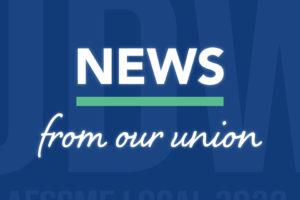
UDW caregivers rally in Placer County to protect our care
“I was so proud to be an American,” said Vicky Coursey, an IHSS provider and UDW member from Placer County.


“I was so proud to be an American,” said Vicky Coursey, an IHSS provider and UDW member from Placer County.
For Immediate Release Thursday, August 25, 2016 Contact: Margitte Kristjansson, 619-548-4304 California home care providers who care for their spouse